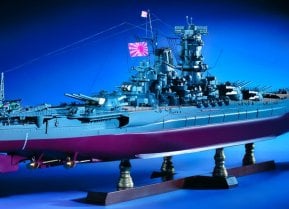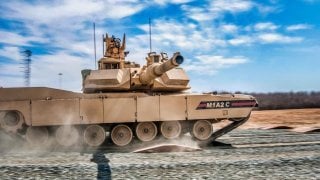Has Russia Already Won the War in Ukraine?
Can we conceive of other outcomes under a new Russian leadership if Putin were to be overthrown?
What are the possibilities for a ceasefire and negotiations aimed at an enduring peace. In recent months there have been reports that Putin may be interested in a ceasefire and territorial negotiations. But we need to beware of such a KGB trap. There has been speculation in the Financial Times of late that Ukraine might have to bear the bitter price of a permanent peace in which Russia retains part, or all, of its occupied territories in Ukraine. But that would turn Ukraine into a weak, truncated state—nominally independent but at Moscow’s mercy.
On 22 January, Russia’s Foreign Minister Sergei Lavrov stated that Russia ‘has always been ready for negotiations’, but he went on to make it perfectly clear that ‘Russia is only interested in negotiations that result in the removal of the current Ukrainian government from power’. Putin himself consistently refuses to recognize that there is any such separate country as Ukraine and that he would not countenance negotiations with President Zelenski. And SVR director Sergei Naryshkin has said that: ‘The Kremlin is not interested in any settlement short of the complete destruction and eradication of the Ukrainian state.’
In any case, I do not see Putin under any circumstances handing back Crimea to the Ukrainians. The only way I can see him perhaps conceding to return the 18% of Ukraine’s territory that Russia currently occupies is a decisive Russian defeat on the battlefield. And even then, my view is that rather than concede victory to Ukraine he is much more likely to perhaps broaden the war to a war in Europe against Russia’s neighbors such as Poland, Estonia, Latvia, and Lithuania.
On 11 February, NATO Secretary-General Jens Stoltenburg warned that Europe needed to ‘arm itself for a possibly decades-long confrontation’ with Russia. About the same time, Denmark’s defense minister warned that: ‘It cannot be ruled out that within three to five years, Russia will test the strength of Article 5 of NATO’s solidarity.’
Might this war extend further into neighboring NATO countries? I am not arguing here that Putin would casually enter such a high-risk military conflict. But Putin will simply not accept the existence of a separate nation-state called Ukraine on its borders becoming a full member of the EU and NATO. He might decide to use tactical nuclear weapons of which Moscow has over two thousand. Both he and Kremlin leaders such as former Prime Minister Medvedev, as well as international security adviser Sergei Karaganov, are being increasingly raucous about the threatened use of nuclear weapons.
Even so, I doubt that Putin and his senior military advisers would relish a full-scale World War III against NATO. However, the fact is that there have been recent rumblings from the Kremlin about Poland as being historically a traditional enemy of Russia, as well as threats to the Baltic republics about them forcing their Russian populations to undergo a local language test if they are to continue to be citizens. So far, however, Putin has not attacked NATO countries such as Poland or Germany who continue to facilitate weapons supplies to Ukraine. Nevertheless, my bottom line is that if push ever came to shove Russia will not accept a battlefield defeat in Ukraine.
And if push ever does come to shove, escalation to a full-scale war with Europe cannot be casually dismissed. As the director of the CIA and former US Ambassador to Russia, William Burns, again observes about Putin: ‘It would be foolish to dismiss escalatory (nuclear) risks entirely.’ Burns, however, does not seem to accept in describing Putin’s war as a ‘strategic failure’ which ‘has exposed Russia’s military weaknesses’ that this may result in Putin escalating to the unthinkable.
If the US and its NATO allies aim to ‘defeat’ Russia, how will this be achieved against a country with 1,500 strategic nuclear weapons and more than 4,000 other strategic nuclear warheads in various states of reserve? And what would a defeated Russia look like? A Weimar Germany angrily looking for revenge? Such imponderables by themselves should leave us deeply concerned.
Can we conceive of other outcomes under a new Russian leadership if Putin were to be overthrown? My own view here is that any such new Russian leadership is more likely to be Putin Mark 2 than some form of Western democrat with all that means for a peaceful outcome.
Finally, we need to address the issue of whether the weaknesses of Russia’s military performance have had an impact on the attitude of China’s President Xi Jinping towards going to war against Taiwan. One would hope that Xi Jinping would understand what a poor military performance his Russian ‘friend for life,’ President Putin, has shown to the world.
Xi needs to understand that some of the inherent weaknesses in the Russian military establishment are also deeply reflected in the DNA of China’s People’s Liberation Army. They include: the distrust by authoritarian leaders in both Russia and China of delegating tactical battlefield decisions to NCOs; the corruption in both countries of their logistics supply and defense industry. Moreover, invading Taiwan across the 200 kms of the Straits of Taiwan is an infinitely greater military challenge than walking across Ukraine’s border with Russia.
Authoritarian leaderships in both China and Russia are typified by deep-seated despotism and pervasive corruption that saps the fighting strength of their armed forces. Most recently, President Xi has sacked several senior generals, including in the strategic nuclear rocket forces, for corruption. For more than 44 years, China has had absolutely no experience of actual military combat. And Xi needs to consider the clear risk in any serious military conflict between America and China over Taiwan that there is a clear and present danger of devastating escalation to the use of nuclear weapons.
Paul Dibb is emeritus professor of strategic studies at The Australian National University. A version of this report ran in The Weekend Australian.
This article was first published by The Australian Strategic Policy Institute.


